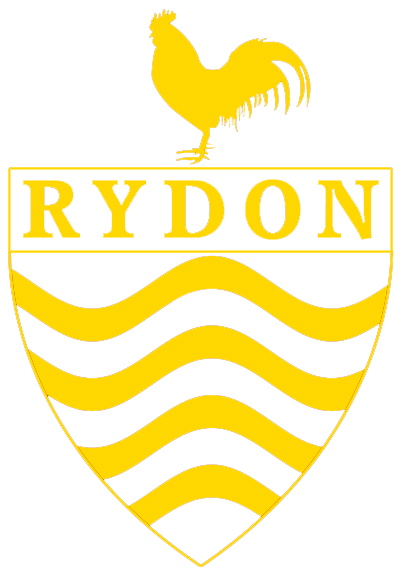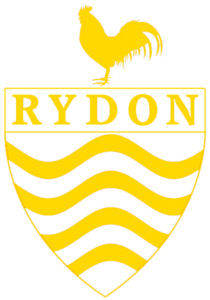Curriculum Statement
‘Learn from yesterday, live for today, hope for tomorrow.
The important thing is not to stop questioning.’
Albert Einstein
Our Curriculum
The curriculum is all the planned activities that we organise in order to promote learning, personal growth and development. It includes not only the formal requirements of the National Curriculum, but also the range of extra-curricular activities that the school organises in order to enrich the experiences of the children at Rydon Primary School. It also includes the ‘values curriculum’, or what the children learn from the way they are treated and expected to behave. We aim to teach children how to grow into responsible, resilient people, who can be part of a team both within school and the wider community and treat each other and the world about them with respect.
Our Intent
We believe that learning should be fun, purposeful and challenging. Through our inspiring, broad and engaging curriculum, we aim to equip each child with the skills and knowledge they need for lifelong learning. We strive to develop confident and resilient learners, who are respectful of themselves and others. Teamwork and collaboration are fostered in an environment where everyone is encouraged to thrive and achieve as individuals, preparing them for their role as responsible and active citizens in modern Britain.
The curriculum at Rydon can be identified as having a knowledge-engaged approach. Knowledge underpins and enables the application of skill. We strive for children to learn skills alongside knowledge, ensuring that both are explicitly developed. We see knowledge and skills as intertwined and our curriculum is about how we can ensure that pupils can develop both. We believe it is important to make the curriculum relevant and meaningful to pupils and for putting knowledge into context. We also place an emphasis on developing the qualities our children need for future learning, including our school values of resilience, responsibility, respect and teamwork which permeate all areas of school life.
Implementation
The curriculum at Rydon aims to combine transferable skills, demonstrate a breadth of vocabulary and develop strong cross curricular links.
The curriculum that we teach in the Early Years meets the requirements set out in the Early Years Foundation Stage. Our curriculum planning focuses on the Early Learning Goals and on developing children’s skills and experiences. Over each academic year in years 1 to 6, each child has the opportunity to experience the full range of National Curriculum subjects which are organised into yearly curriculum maps. Alongside lessons, there are many other planned experiences: topic days, assemblies, clubs, sports, trips and visits, workshops, forest school sessions, residential camps, fund raising events, and community work.
Teachers set high expectations for every pupil. Those who are most able are challenged and supported through being offered tasks which provide opportunities for greater depth and those who struggle are encouraged and given targeted support to embed skills, to develop at their own pace or simply to learn in a style that best suits their individual needs. The curriculum at Rydon is designed to provide access and opportunity for all children who attend the school. If we think it necessary to adapt the curriculum to meet the needs of individual children, then we do so in consultation with the child’s parents.
Impact
The main source of impact will always remain the quality and breadth of work seen in pupil’s books and the learning environment. We use rigorous monitoring throughout the year to gauge the impact of the curriculum design. Senior leaders, middle leaders and subject leaders monitor individual subjects: reviewing learning, evaluating pupil voice, providing individual feedback to move practice forward, celebrating positives and highlighting areas of development. Governors are kept well informed of developments and progress made through the curriculum by meeting with subject leaders and interviewing pupils. Our whole school team strengthen our ethos and vision as we work together to reflect upon our curriculum and share outcomes driving forward next steps.
The impact of our curriculum is also measured by formal assessment procedures, which allow us to measure outcomes against all schools nationally:
- EYFS % of pupils achieving a ‘Good level of development’ (GLD)
- Phonics Screening Test at the end of Year 1
- End of KS1 % of children working towards or at the expected standard and at greater depth in reading, writing and maths. % children working at the expected standard in science
- Multiplication tables check at the end of Year 4
- End of KS2 % of children working towards or at the expected standard and at greater depth in reading, writing and maths. % children working at the expected standard in science
Furthermore, the impact is measured by how effectively it helps our pupils develop into well-rounded individuals who embody our values and carry with them the knowledge, skills and attitudes, which will make them lifelong learners, and valuable future citizens.

